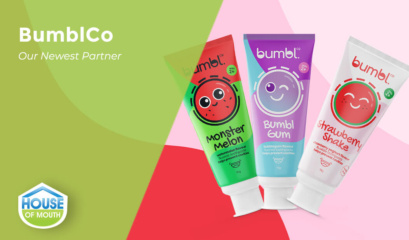Experiencing tooth sensitivity can turn everyday activities like eating and drinking into uncomfortable challenges. Sensitive teeth, a common dental issue, can significantly impact your quality of life, making it essential to understand and manage this condition effectively.
Understanding Sensitive Teeth
Sensitive teeth, or dentin hypersensitivity, occur when the dentin, the layer beneath the tooth enamel, becomes exposed. This exposure can lead to discomfort or pain in your teeth when encountering substances that are hot, cold, sweet, or very acidic. Typically, symptoms manifest as a sharp pain that can affect one tooth or several.

Common Causes of Sensitive Teeth
- Enamel Erosion: Consuming acidic foods and drinks can wear down enamel, exposing the sensitive dentin.
- Gum Recession: Gum disease or harsh brushing can cause gums to recede, exposing the roots of your teeth.
- Teeth Grinding: This habit can wear down enamel over time, leading to increased sensitivity.
- Dental Procedures: Treatments like fillings, crowns, or teeth whitening can temporarily increase teeth sensitivity.
Understanding these causes is the first step towards finding effective relief and preventing further damage to your teeth.
Natural Home Remedies for Sensitive Teeth Pain
If you’re seeking relief from the discomfort of sensitive teeth, consider these straightforward and effective home remedies:

Saltwater Rinse
To reduce inflammation and soothe your gums, dissolve one teaspoon of table salt into a cup of warm water. Swish the solution around your mouth for 30 seconds before spitting it out.
Repeat this rinse twice daily, especially after meals, to keep inflammation at bay.
Honey and Warm Water Rinse
Honey is renowned for its natural antibacterial and healing properties.
To utilise honey for sensitive teeth, mix one tablespoon of natural honey into a cup of warm water until fully dissolved. Use this mixture to gently rinse your mouth once a day.
This can help not only to reduce pain and inflammation but also to keep your gums healthy.
Herbal Tea Rinses
Chamomile and green tea are excellent for their anti-inflammatory effects.
Brew a strong cup of either tea and allow it to cool completely. Use the tea as a mouth rinse twice a day.
Oil Pulling with Coconut Oil
This traditional remedy can improve oral health and reduce sensitivity.
Place a tablespoon of coconut oil in your mouth and swish it around for 15 to 20 minutes, ensuring it moves between all areas of your teeth and gums. Do not swallow the oil.
After swishing, spit it out, rinse your mouth with water, and brush your teeth as normal.
For best results, practice oil pulling in the morning before you eat or drink anything.
Oral Care Product Remedies for Sensitive Teeth
For those with sensitive teeth, selecting the right oral care products is crucial for comfort and effectiveness. Here are some products specifically designed to help manage tooth sensitivity:
Desensitising Toothpaste
Look for desensitising toothpaste containing potassium nitrate, a compound known to help reduce tooth sensitivity by blocking the tiny tubules in the dentin. Regular use can significantly diminish pain from sensitive teeth.
Soft-bristled Toothbrush
Using a toothbrush with soft bristles is essential for those with sensitive teeth. It helps prevent further gum erosion and enamel wear, which are common causes of sensitivity.
Fluoride Mouthwash
A fluoride-containing mouthwash can help remineralise the teeth, strengthening the enamel and reducing the transmission of sensations that cause pain.
Desensitising Gels
Similar to desensitising toothpastes, these gels can be directly applied to the sensitive areas of your teeth for targeted relief. They often contain higher concentrations of active ingredients like potassium nitrate or fluoride, providing fast and effective reduction of sensitivity.
Incorporating these products into your daily dental care routine can not only provide relief from pain but also help prevent the progression of tooth sensitivity. Always consult with a dental professional before starting any new dental treatment to ensure it’s suitable for your specific health needs.
Preventative Measures to Avoid Sensitivity

Proper Brushing Technique: Use a soft-bristled toothbrush and gentle, circular motions to brush your teeth. Avoid harsh, back-and-forth strokes which can wear down enamel and exacerbate sensitivity.

Avoid Acidic Foods and Drinks: Limit your intake of highly acidic substances such as citrus fruits, tomatoes, and carbonated drinks, as these can erode tooth enamel over time. If you do consume them, rinse your mouth with water afterwards to neutralise the acids.

Use a Straw: When drinking acidic or sugary beverages, using a straw can help minimise contact with your teeth, reducing the risk of enamel erosion.

Wear a Night Guard: If you grind your teeth at night, consider using a mouth guard. Teeth grinding can significantly contribute to tooth sensitivity by wearing down the enamel.

Regular Dental Visits: Schedule regular check-ups and cleanings with your dentist. These visits are crucial for detecting early signs of gum disease, removing plaque buildup, and applying fluoride treatments or sealants that can help strengthen enamel.
When to See a Dentist
While home remedies and over-the-counter products can provide relief, certain conditions and symptoms warrant professional attention. It’s important to consult with a dentist if:
- Persistent Pain: If your tooth sensitivity does not improve or worsens even after using desensitising products for several weeks.
- Sudden or Severe Pain: This could be a sign of a more serious underlying issue such as a dental abscess or cracked tooth.
- Gum Recession: If you notice your gums are receding, it is crucial to get professional care to prevent further damage and potential tooth loss.
- Recent Dental Work: Sensitivity following recent dental treatments such as fillings, crowns, or whitening should gradually subside. If it persists, your dentist needs to check for possible complications.
Ready to Take Control of Your Sensitive Teeth?
Don’t let sensitive teeth dim your smile! Explore our range of sensitive teeth specialised products at The House of Mouth. If you’re experiencing persistent or severe tooth sensitivity, schedule a consultation today. Our experts are here to help you achieve and maintain a healthy, pain-free smile. Contact us for more information and personalised care solutions.

















